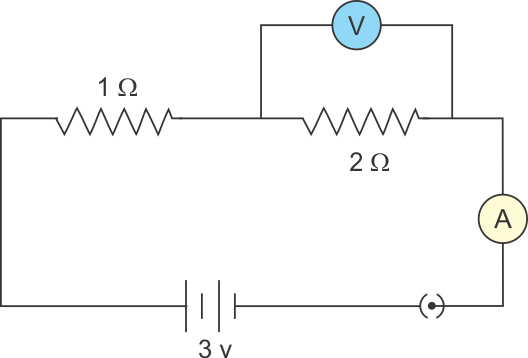

but at what level do we do integration testing? Do we do a bunch of integration tests at the top level? Or do we do one for each level that accepts an interface? When it comes to integration testing however, we want to make sure everything works as intended.

CarFactory adds cars by a Car interface.CarCompany adds new factories with a CarFactory interfaces.Now suppose that we have interfaces used for each step, like: As such, a CarCompany owns many CaryFactorys, which in turn makes multiple Cars, which have their own possible Engine types, and those are made up of atomic Parts.
#Logicworks voltmeter Pc#
PC power supplies was someone else's suggestion.Suppose we have a hierarchy like the following, where each thing under it means it is composed of that type: CarCompanyįor everything above, also assume each component has logic associated with it and it's not just a glorified collection. Where as, they are not perfect, In my opinion, they are a far better choice than glass fuses.Īnd if you read my other post you will see that I was advocating the use of lab type power supplies and Wall warts, for general experimentation. They are also designed for the voltage range that a PC power supply will produce. This means any expanding gas or debris will be focused toward the fuse holder. They are also vented, toward the bottom of the fuse. Automotive fuses are not made of glass, So they will not shatter. I was referring to the use of automotive ATO fuses over glass fuses for this application. If you are going to quote me, Please do so as complete as possible. "I highly recommend it, if you use a PC power supply as a bench power supply." If i build something with a large current use i(such as motors) i build th e PSU first.įor general PSU for electronics though i see no need or an expensive supply.Ĥ0 should get you a very usable variable supply for experimentation. If i have an application that requires high current i would consider something like a computer supply unit. Although he did not explain his reasoning.Ĭheap very usable lab type supplies can be found on EBAY. Initial post indicated he did not know what to look for. Im based in the UK so need to buy from a UK supplier or one that will dispatch to the UK.Īt the moment im looking for something in the range of 50v 10A. New to all this and looking for a bench power supply, any advice for power range, voltage and other features would be greatly appreciated. I have used computer supplies for specific applications such as plating and electrolytic experimentation. I highly recommend it, if you use a PC power supply as a bench power supply. And it is always best to use the right tool for the job But unfortunately, We must use what we have available to us.

but you may not see it with an analog or digital meter with a bar graph, for that matter.Įach of us has their own preference. A power on/off spike or noisy signal, Can be seen with a digital scope. the digital scope can capture the events, and slow them down so you can see it.

A digital scope is your best option for this. and you can't keep your eye on the meters all the time. And if your current limit is set correctly, your current/voltage regulation indicator lights will be flashing back and forth. You cannot set your voltage/current as precisely with analog meters. True, But analog meters are not as accurate as digital meters. If you need to measure a voltage accurately, then a digital multimeter is the tool for the job. Is drawing too much current and you need to react immediately if so - a moving needle is vastly superior One of the key uses for the meters on a supply is to tell you if your new circuit you are commissioning (which are pretty useless for catching pulsing or spiking loads). Definitely go for 30V rather than 20V if you can, definitely go for analog meters, not digital


 0 kommentar(er)
0 kommentar(er)
